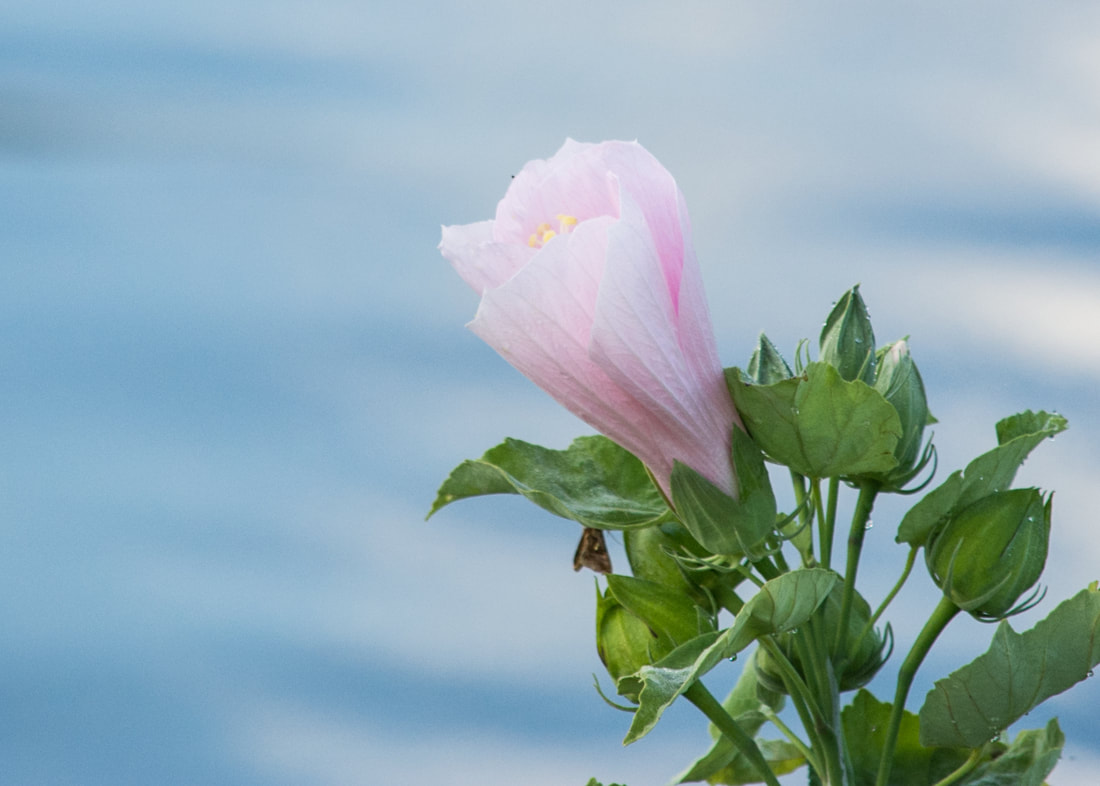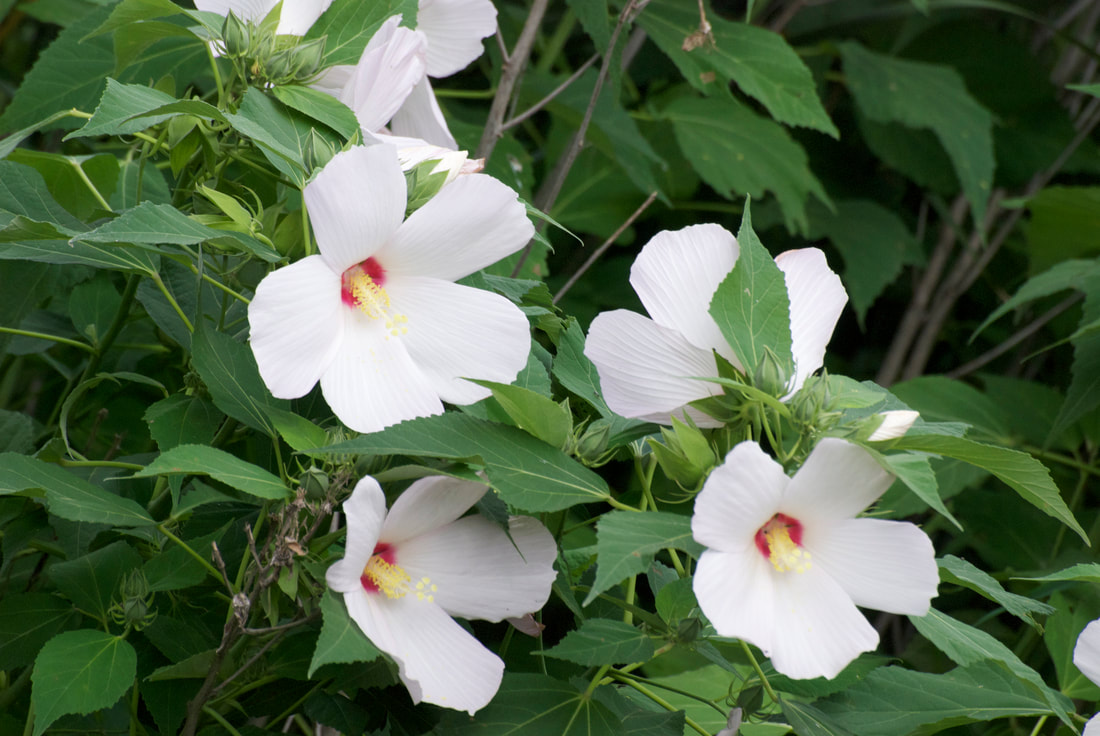|
Scientific Name: Althea officinalis Family: Malvaceae (the same family that brings you Okra, Mulberries, and Hibiscus!) Etymology: Althea from Latin altho, “to heal”; officinalis indicating its placement in the official pharmacopoeia of medicine, medieval Latin Taste/Energetics: cooling, soothing, neutral/slightly sweet Parts Used: all parts, especially dried root Actions: anti-inflammatory, anti-tussive emollient, demulcent, diuretic, vulnerary Uses: Wherever there’s an itchy, hot, inflamed situation, think Marshmallow. Marshmallow root is a cooling, soothing mucilage that resolves irritated epithelium both inside and out. Mucilages are polysaccharides- slimy, thick, moistening and cooling in nature. Mucilages like Marshmallow root are interesting in that they resolve inflamed states without penetrating the cells at all- rather, the mucilage acts physically rather than chemically, coating the skin’s surface with a soothing, protective barrier to allow healing to take place. This non-intrusive quality makes it especially safe for infants, infirm, and elderly to use and makes it paramount medicine for any digestive condition characterized by inflamed, irritated tissue and ulcers. The slippery nature of Marshmallow means it can also acts as a gentle laxative.
Marshmallow has an affinity for tissue of the digestive and urinary systems. Stephen Bergner calls it the band-aid of the stomach for this reason. Think of Marshmallow for any case of heartburn and irritable bowel or as a mouthwash for inflamed gums (remember that the lining of the mouth is contiguous with the entire digestive tract). Marshmallow not only cools and soothes, but it’s vulnerary action means it heals wounds. Traditionally it was used in topical poultices for injuries. Its hydrophilic nature means it retains heat, allowing the heat to penetrate more fully when used as a warm compress for sprains and swelling. The epithelium of the gut is similar to that of the throat- therefore, Marshmallow is an ally during cold and flu season. Sore throats and painful coughs are calmed by Marshmallow. It also stimulates phagocytosis, the process by which the immune system destroys pathogens. Rosalee De le Foret recommends Marshmallow root for lingering post-infection coughs, dry coughs, and unproductive coughs. As a urinary system anti-inflammatory, it is an effective remedy for the hot, inflamed and irritated conditions of bladder infections, cystitis, kidney stones, and frequent UTIs. Preparation/Dosage: Cold infusion is ideal for retaining the cooling qualities - put 1-3 tbsp of dried herb, tied up in a satchel or loose, in cool, filtered water. Let infuse overnight and strain in the morning. Drink throughout the day to soothe chronically irritated guts or prevent heartburn. Hot or cool compress (depending on your needs) - simply place a clean cotton rag into your marshmallow tea and wrap around irritated, swollen, or inflamed skin. Contraindications: According to King’s American Dispensary (1898), the infusion or decoction may be freely administered. In modern times, take several hours after taking prescription medications as it may inhibit the absorption. Resources dela Foret, Rosalee. 2010. Learning Herbs https://learningherbs.com/remedies-recipes/marshmallow-root/ Pengally, Andrew. 2004. The Constituents of Medicinal Plants
Christy T
6/10/2019 08:26:09 am
Thanks for posting this! I was just speaking with my mother-in-law about this yesterday. Her sister sent her some Marshmallow for her lungs and urinary tract. My mother-in-law has COPD and often has illness in her lungs- which is usually a hot, wet cough. Do you suggest Marshmallow for this constitution or something else for her hot, wet cough? Could she use Marshmallow for her irritated urinary tract without affecting her wet cough?
Eileen
6/10/2019 10:22:20 am
Hey Christy!
Sasha Gracia
11/2/2019 09:15:50 am
Sasha Gracia
11/2/2019 09:16:49 am
Comments are closed.
|
Eileen Brantley & Amy WrightWe are Herb Girls Athens, LLC. Read our blog! Archives
November 2022
Categories
All
|



 RSS Feed
RSS Feed
